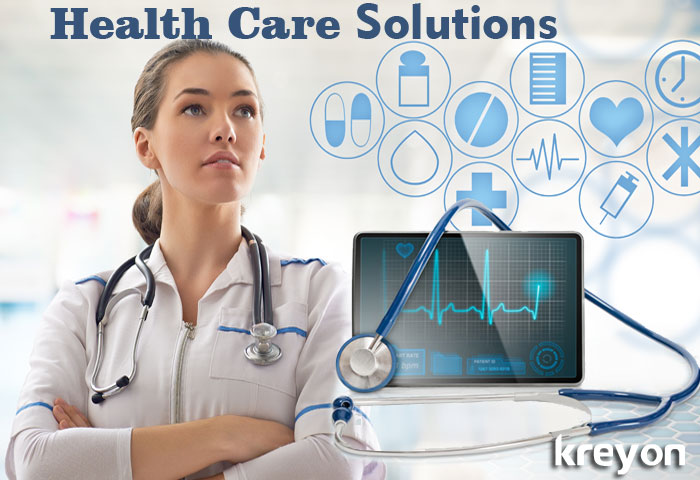How Internet of things is transforming the Healthcare Industry!
As per a new report from MarketResearch.com, the healthcare segment of Internet of Things is expected to be $117 billion by 2020. The healthcare industry is seeing rapid developments around patient care solutions. The use of sensors, wearable devices and increased health awareness is creating a revolution in the healthcare industry. The driving objectives are providing best patient care solutions, improving patient connectivity with clinics and proactive patient care with realtime data.
With modern wearable devices, it is easier to measure critical health indicators like blood pressure, sugar levels, Sp02 etc. The devices which are worn by individuals are connected to centralised systems. These systems record streams of information about individuals; they collect data from the sensors on the devices. The data is stored and analysed, when a critical condition is reached, the alerts are sent to the individuals and doctors. The proactive health monitoring systems are used to track vital medical information of patients with wearable devices and apps. Physicians and hospitals are able to track their patients remotely using these systems. A look at how internet of things is shaping the healthcare industry:
1. Wearable devices : The wearable devices and gadgets are used to monitor and track heart rate, respiration, blood pressure, oxygen, calories burnt, and temperature etc. The information is collected and analysed by patient care systems, any aberrations cause action alerts.
2. Preliminary Diagnostics : The physicians can track their patients & prescribe them primary medications based on the test results from the devices. Early detection of any anomalies and proper medication can be crucial in many cases, the smart devices can help in obtaining the test results data to the physicians based on which treatment can be ensured.
3. Self-Management of Chronic diseases : The healthcare apps can be used to monitor and track important health information for patients. These apps can also be used to push reminders to medications, track and monitor the movements of patients. Diseases such as diabetes, asthma, dementia and high blood pressure have tailor made apps where doctors can track their patients. These apps provide crucial information, alerts and improve patient clinic interaction.
4. Remote Monitoring : With IoT enabled systems, the remote monitoring and analysis of patients is possible with smart devices and apps. The electronic health records of patients are maintained with detailed information of data about these patients. Quality care, proactive monitoring of health and improved communication can really make a huge difference in healthcare.
5. Preventive Healthcare : The effective health monitoring systems and apps have features which can facilitate communication between patient & the doctor. It is crucial in times of emergency. The preventive healthcare systems provide features like video conferencing, calling and monitor data frequently to take preventive actions. The flow of information from these apps, patient’s vital diagnostics and improved quality of care are effective ways in which digitisation of healthcare can be done.
6. Personalised Patient Care: With the internet enabled devices, the patients are always connected to the centralised systems. The patients are connected to a centralised system through apps. The app is used to provide easy actionable insights for patients and also sends notifications and alerts to the care team.
7. Healthcare Dashboard : The hospitals and clinics have a centralised system which connects them to the patients. All information which is collected through apps is stored in this system. Critical diagnostics are immediately reported to the concerned physicians with historical information and reports with healthcare software.
The advent of internet of things is enabling the healthcare industry with sophisticated tools to improve patient care. The realtime diagnostics, patient data and centralised information of data is important for serving patients better. The remote monitoring systems, patient alerts help in reducing outpatient visits, decreases the cost of care and improves efficiency of clinics. The digitisation of healthcare with IoT platforms helps clinics to leverage the same infrastructure for serving more patients, improving care and operations.

